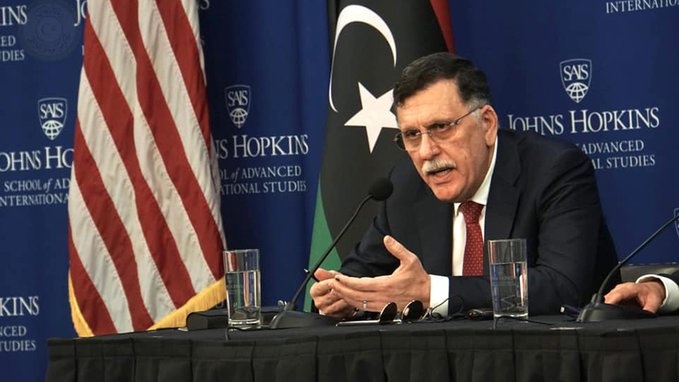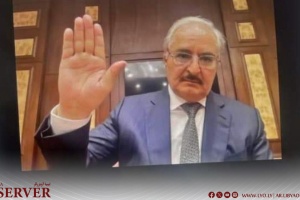The Head of the Libyan Presidential Council Fayez Al-Sarraj said the attempt of a "renegade military man" to create a totalitarian rule in Libya led to the current deterioration of security conditions in the country.
Speaking at Hopkins University in Washington, Al-Sarraj said negative foreign intervention had fueled the conflict in Libya and that the Presidential Council had tried to break the political impasse through the Libyan National Conference before Khalifa Haftar led an attack on Tripoli and shelved political solutions.
He said the Presidential Council is committed to the June-proposed initiative for solution in the country, calling on eastern elders and tribespeople to select representatives to the proposed Inter-Libyan gathering without Haftar.
He indicated that the Presidential Council's task in the transitional phase is to lay the foundation for a civil state, including a constitution, referendum on it and then general elections.
Al-Sarraj talked about the offensive led by Haftar on Tripoli in violation of Security Council calls and said Haftar's attacks around and in the capital caused great damage, adding that a fact-finding committee from the UN should visit the war-torn areas to show the world the truth, mentioning that a criminal wanted by the International Criminal Court, Mahmoud Al-Werfalli, is still committing crimes and killings.
He indicated that areas under the control of Haftar's forces are living in fear with recurrent forced disappearances and kidnappings, the latest of which was the member of the House of Representatives Siham Sirgiwa.
"Libya has what it takes to prosper given the resources and potentials as well as the strategic location it has. Libyans have a chance to help their country develop and thrive." Al-Sarraj remarked.








